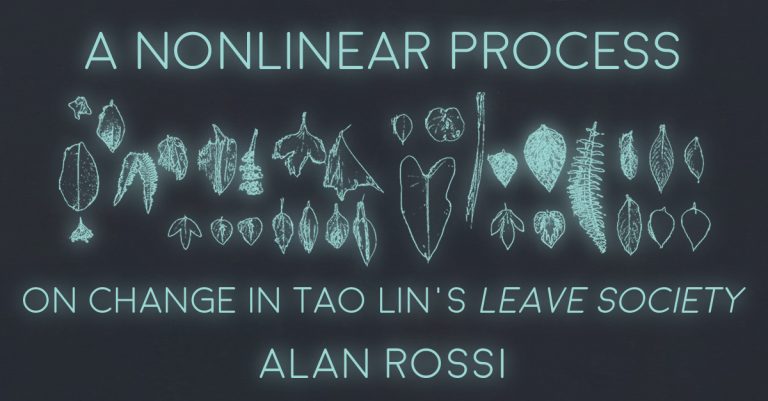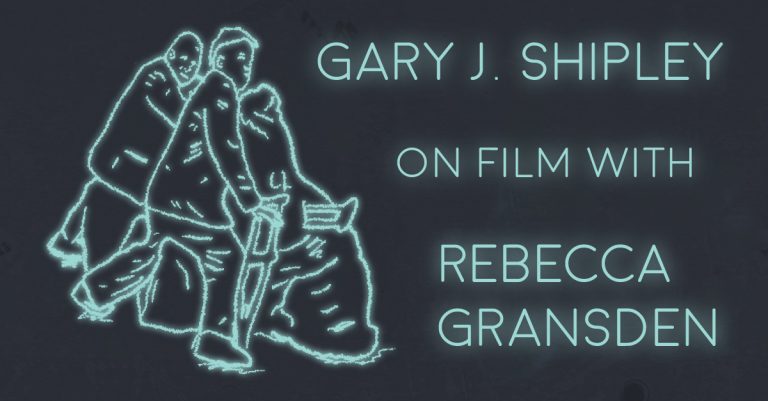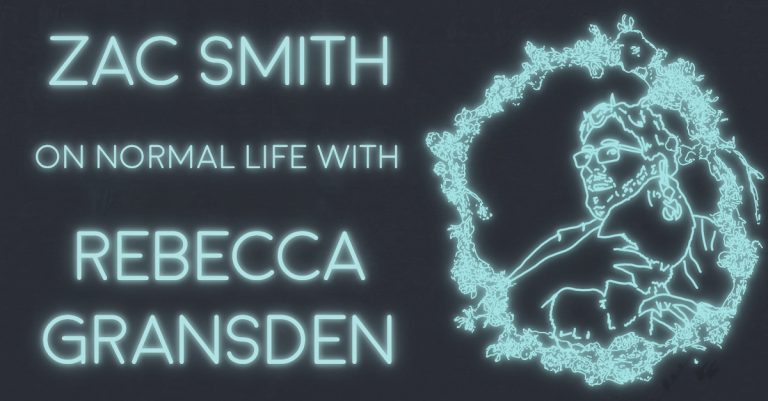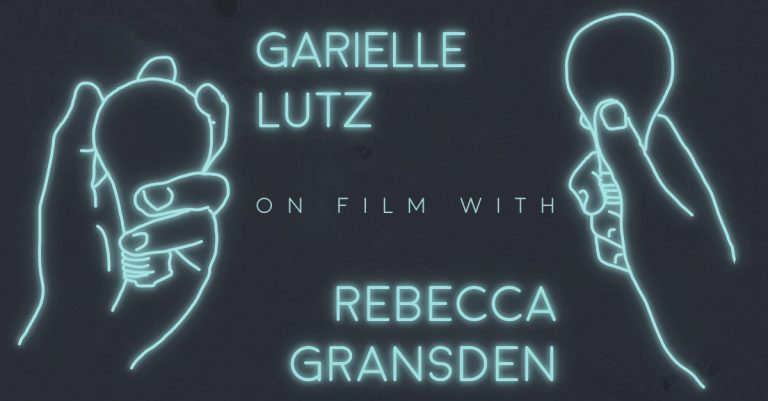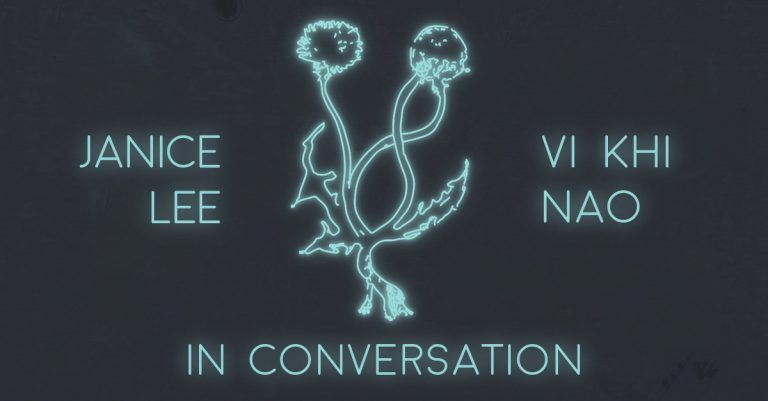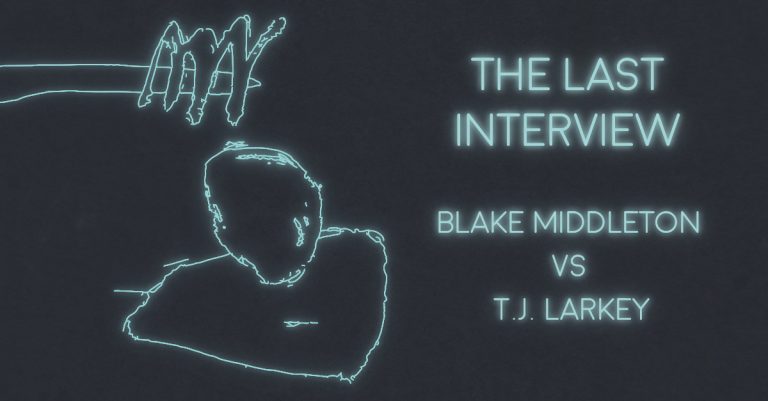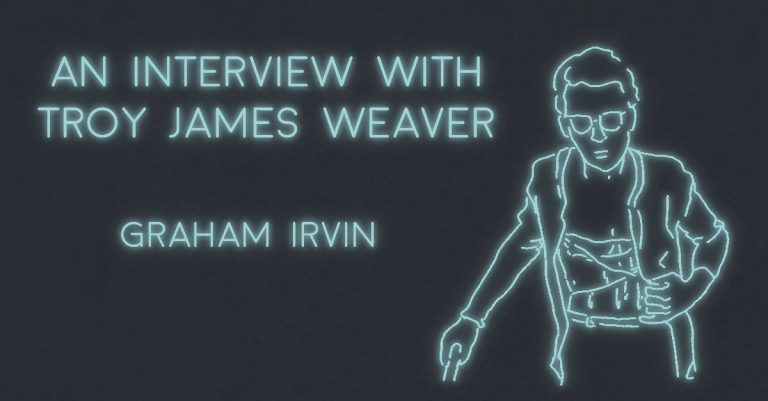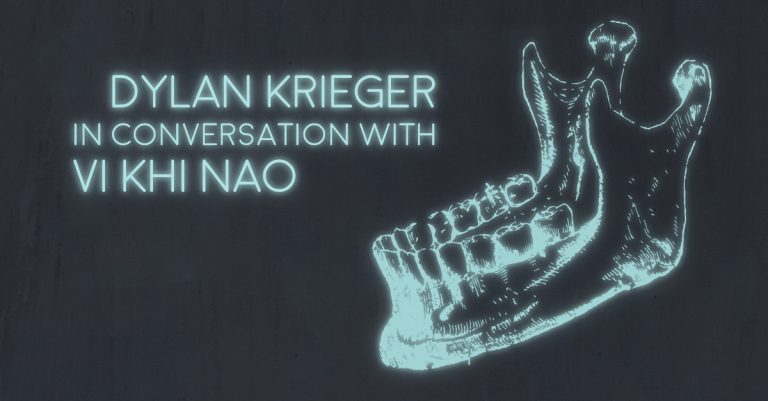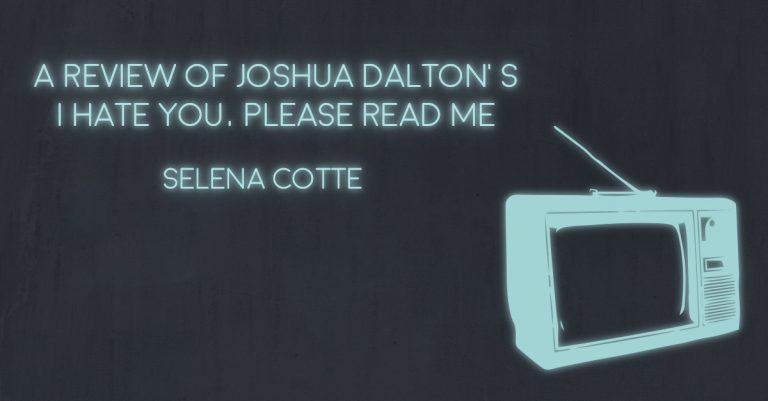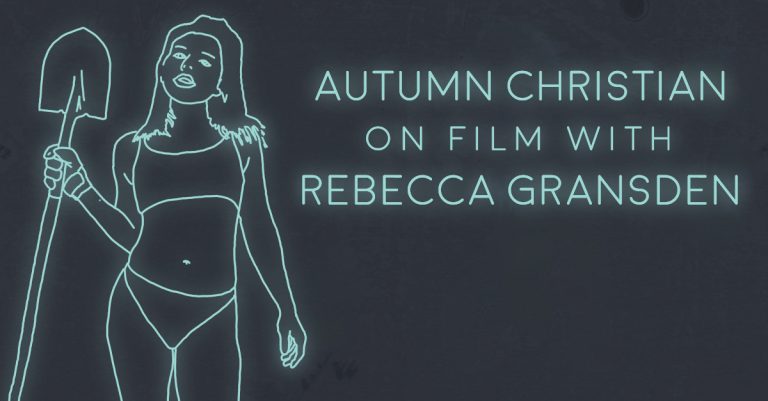
AUTUMN CHRISTIAN on film with REBECCA GRANSDEN
Quiet like a bomb waiting for its lit fuse, Autumn Christian has steadily accrued a series of intrepid releases. Nominally designed to satisfy certain genre cravings, Christian’s writing transcends any label simply by being uncommonly good. Her work is strange and provocative, endlessly imaginative, full-blown addicted to ideas, and fearless. For any insight into a mind this committed to creative freedom, the natural starting point is to visit the environment Christian grew up in.
‘I was born in Oklahoma City, but my parents moved to Fort Worth when I was a toddler so my dad could pursue a career in video games. One of my first memories is walking behind the undeveloped land behind my house, full of rocks and dirt, and hearing the hiss of a rattlesnake.
‘I thought most of America looked like the suburbs of DFW. It seemed normal to grow up on a cul-de-sac full of kids and mothers that stayed home, attend Methodist church every Sunday, and go to Chili's or Olive Garden afterward in a black velvet dress.
‘But my grandparents were also dairy farmers who lived on a farm in Kingfisher, just outside of Oklahoma City. I spent a lot of weekends milking cows, climbing into granaries, bottle feeding calves, and digging holes so I could fill them with mud and climb into them wearing my bathing suit. The characters in John Steinbeck's Grapes of Wrath talk exactly like a lot of the rural Oklahomans I know.
‘Spending so much time in rural Oklahoma, and then at my Dad's work, surrounded by game developers, engineers, and (at the time) cutting edge tech, has brought a strange dichotomy to my writing. Southern gothic mixed with sci-fi. Video games and the brutal reality of farm life. I'm always trying to merge the high and low. The primitive and the future. To show how they're interrelated.’
The open blue skies above the grasslands of Oklahoma suggest space, while psychological claustrophobia permeates Christian’s fiction. With a surrealistic touch, duality is addressed in innovative ways. Conjoined twins, the mechanistic view of human existence, and the indifference of the natural world, are explored in all their depths and ambiguities. It’s this interfacing of elements that brings an electric quality to Christian’s writing. Raw despondency contrasts with cool systematisation, biological processes become confused, and wildness confronts an accelerating technologized world. These concerns are reflected in pivotal films from childhood years.
‘The first film that really embedded itself into my consciousness was the Miyazaki film Princess Mononoke. I saw it when I was 9 years old with my Dad at the Angelika Theater in Dallas. It was one of the few times I had alone time with my Dad, as by then my parents were divorced. I had never seen a movie with such intensity. I can vividly remember San spitting out the blood of the wolf, her mouth ringed with red as her earrings flashed. It was probably a little too adult for a nine year old, but I was transfixed by it.
‘Then there was The Matrix. I found it in a bin in Best Buy when I was around ten years old, and the description entranced me. At the time I'd never seen a film that dealt with themes of reality and consciousness. It set my brain spinning off into thinking about who we are as human beings, and how our warped perception influences who we are. Rewatching The Matrix now, it definitely has moments of cheese, and Big Blockbuster silliness with its action scenes and tacked on romance. But at the time it seemed perfect.
‘I mostly watched movies with my Dad and my brother, so we ended up watching a lot of Asian martial arts and horror. Tale of Two Sisters, a Korean horror film, was probably my favorite of these. It's a fragmented film, full of confusing madness and vivid imagery, and to this day I still don't completely understand it. Although I don't have a sister, the claustrophobia of the home, feeling trapped as ordinary spaces become horrible, and the split personality of the step-mother all were reminiscent of experiences I had.
Another major film was Blade Runner. I was living with my aunt at the time, after dropping out of college. I had this huge collection of books I had to leave behind, and I'd only managed to bring some of my Philip K. Dick novels with me. She got me Blade Runner to watch back when Netflix still mailed in DVDs. It was comforting in its human warmth juxtaposed with the coldness of the cyberpunk city. Its slow burn still never managed to feel boring. Although it's a beautiful movie I know the particulars of the moment also made me attached to it. I've probably watched Blade Runner more than any other movie. I don't often rewatch movies, it's difficult enough to get me to sit still long enough to watch one these days, but Blade Runner is a dark comfort I can return to time and time again.’
Blade Runner’s poignant exploration of Artificial Intelligence and the ramifications it has for human consciousness points the way towards the central themes of Christian’s fiction. Common to the stories is a sense of human capacity being insufficient to get to grips with interloping forces, whether those forces are from a man-made, natural, or internal source. These sources are often oblique and difficult to pin down, as is the compulsion to write itself.
‘I've been writing fiction pretty much as long as I can remember being able to read. I always considered myself a “writer.” It wasn't a choice I could remember making, and in many ways it never seemed like I had any other choice. Books were a huge part of my life as they allowed me to access worlds that weren't mine, in quiet privacy. To retreat from the world without anyone knowing where I went.
But cinema, with the exception of video games, is the closest we can get to a full body story experience. It was common for my dad, brother, and I to go to the movies on a weekend and I remember walking out the exit in a daze, nearly in tears, overwhelmed by the intensity of what I'd seen. I wanted to create stories that made people feel like that.’
When queried on films that have had a direct influence on her writing, Christian offers up examples that glory in hyper-stylised representations of violence. ‘The double feature of Planet Terror and Death Proof. The spattered, colored violence of Planet Terror, Rose McGowan with a machine gun leg, combined with the stretched out, cool romanticism of Death Proof only interrupted by spattered bursts of action.’ The choices reflect a time when cinema twisted sensationalist spectacle and turbocharged exploitation into art. ‘The movie Oldboy with its strange intensity, evocative oddness, and unrepentant violence. The violent melancholy of the protagonist eating a live squid lives rent-free in my head.’ Films synonymous with an iconic visual sensibility also dominate. ‘Sin City, with its beautiful darkness and entangled narrative from multiple perspectives, and Akira, with its nightmare cityscapes and intense, overwhelming horror of being stuck with a power you don't understand in a rapidly changing body.’
Key to Christian’s relationship with film is living through a time of transition for the medium.
‘Cinema has had a huge impact on a writer's writing in general. Compare anything that people write now compared to before television. It's leaner. Sharper. We all now share a sort of visual shorthand, and no longer feel the need to spend pages in loving, lush descriptions of things that we've all seen on a screen. We can instead focus on short, punchy, provocative moments. We can choose to pick words that directly hack into the reader's brains.
‘I grew up in the 90s, right before television started to get really good. I watched a lot of episodic, forgettable shows before I was introduced to shows like Firefly, Dexter, and 6 Feet Under in my late teens. It was then that I realized narration could evolve into something that felt so real, it was like it curled around my brain. It wasn't just something to have on in the background while I was doing something. It forced my attention. Narration is a constantly evolving process, and as our culture develops, we get better at understanding and creating it.’
This is fiction that knows where fear lies — it’s not with riding the ghost train but with the guy who pulls the lever to start the ride. It’s him who we repeat rumours about, who walks in his own mythology, who steals kids. Christian’s characters often deal with mental anguish, many of the stories addressing emotional distress and neglect.
‘I think trauma is at the center of many stories, because trauma is centered so much within the human experience. Although it's a much more recent movie, the grief that permeates Hereditary is one of the most vivid and unflinching perspectives I've ever seen.’
Her characters are flawed, struggling at times, but also defiant. The seductive power in the transgression of boundaries is acknowledged, as is the fascination with figures that embrace extremes of human behavior. The sunshine man, who makes an appearance in “Sunshine, Sunshine” — a story featured in Christian’s collection Ecstatic Inferno (Fungasm Press, 2015) — stands out as particularly memorable, and yet he makes a hauntingly brief appearance. Christian’s poeticism infects the grit of her narratives with an emotional intensity that is at times heartbreakingly lyrical, and at others menacingly bleak.
‘I have always been intrigued by dark, powerful villains and antiheroes. Men who may or may not be alien, almost Lovecraftian, larger than life, and sometimes stunning in their cruelty. I think of Hannibal in Silence of The Lambs (and Hannibal in the series), Randall Flagg in The Stand (although he's scarier in the books), Frank Booth in Blue Velvet, Bobby Axelor in the show Billions, and Dexter Morgan in Dexter.’
With categorisation increasingly moot, if it ever was a concrete construct, and cross-pollination across all mediums common, Christian is reflective about the place of her own writing.
‘I'm usually considered a horror or sci-fi author, but when a story comes to me I don't pay attention to genre. I have always been interested in the merging of highbrow and lowbrow art. Genre and literary. I want to feed someone broccoli that goes down like chocolate. Have them get a taste of Faulkner or Dostoevsky, but it reads like Stephanie Meyer. Or, for a film equivalent, you sit down to a fun movie like Legally Blonde and find that it's actually a fairly intelligent piece of art about our ideas of perception, attractiveness, social clout, and how we form friendships.
‘I don't care so much about being seen as intellectual as I am about transferring ideas like metaphysical viruses. Some people think style or characters or deep meanings are the most important things, but above all, I think a story needs to be engaging. If it isn't engaging that means something isn't working correctly. It's a difficult trick to pull off, to merge fun with deepness, but one that I'm fascinated by. I want to generate ideas that people can't tear their eyeballs away from.’
Imbued with loaded and vivid imagery, Christian’s fiction is inherently cinematic and almost demands to be adapted for film or television. Forefront in her mind as best placed is a 2019 CLASH Books release.
‘Of all my books that I'd like to be adapted, it'd have to be Girl Like A Bomb. I can see it either being a terrible or a brilliant movie, depending on how the director handled the sex scenes. I feel like the book itself rides the line between B thriller and cult classic, cheesiness and beauty, so that makes sense to me.’
Undermine the algorithm:
‘If any fans of my writing are reading this, I'd recommend these 3 movies:
‘The Handmaiden, an adaptation of the novel Fingersmith, by Korean director Park Chan-Wook. It's an erotic psychological thriller without a wasted moment. I found it incredibly moving, provocative, and romantic.
‘Antichrist from Lars Von Trier. Intense, melancholy, peaceful, and excruciating all at once. One woman's descent into madness, back into the crucible of nature.
‘The Cronenberg film, Existenz, which combines tech, hallucinatory realities, and mind-warping provocative horror.’

